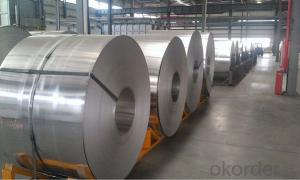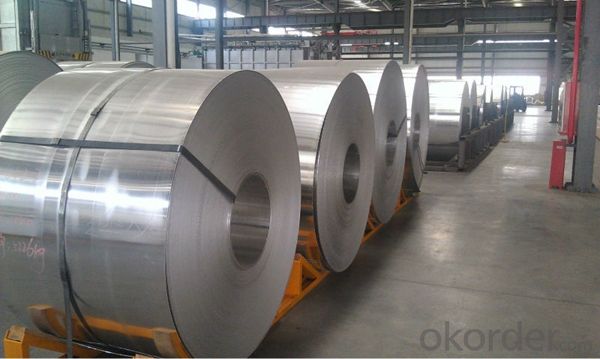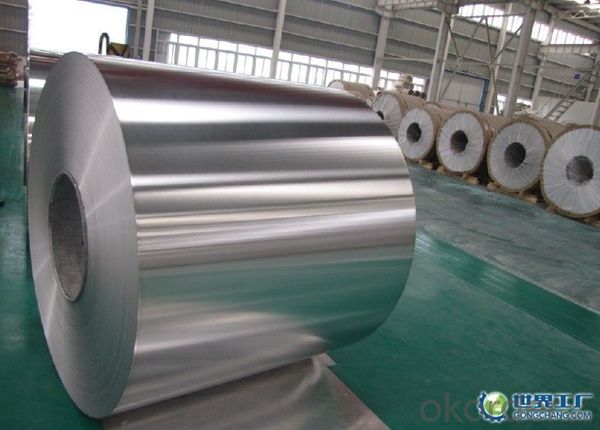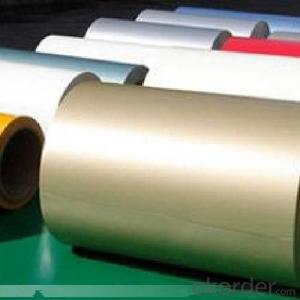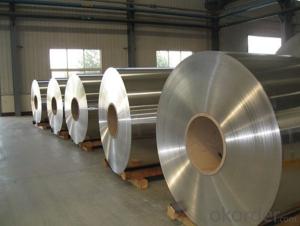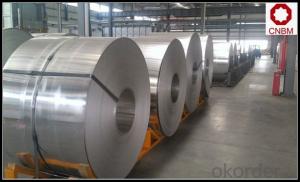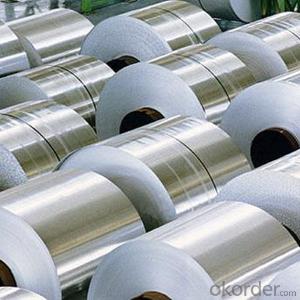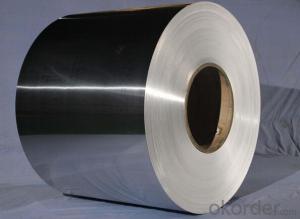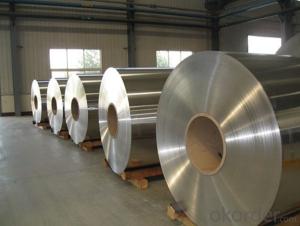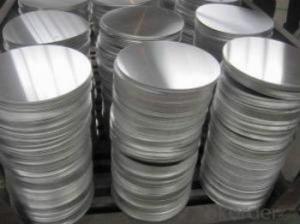Mill Finish Aluminum Coil 3003 H22 China Factory Direct Supply in Pensacola
- Loading Port:
- Shanghai
- Payment Terms:
- TT OR LC
- Min Order Qty:
- 5 m.t.
- Supply Capability:
- 1000 m.t./month
OKorder Service Pledge
OKorder Financial Service
You Might Also Like
Specification
1. Specification of Mill Finish Aluminum 3003 H22 China Factory Direct Supply
Alloy Number | AA5XXX |
Temper | H12, H14, H16, H18, H22, H24, H26, H32, HO, F |
Thickness | 0.1mm – 500mm |
Width | 10mm- 2200mm |
Standard | GB/T3880-2006, ASTM, ISO, EU standard |
2. Application of Mill Finish Aluminum 3003 H22 China Factory Direct Supply
(1).Interior: wall cladding, ceilings, bathrooms, kitchens and balconies, shutters, doors...
(2).Exterior: wall cladding, facades, roofing, canopies, tunnels,column covers , renovations...
(3).Advertisement: display platforms, signboards, fascia, shop fronts...
3. Feature of Mill Finish Aluminum 3003 H22 China Factory Direct Supply
Surfact Quality :
Be free from Oil Stain, Dent, Inclusion, Scratches, Stain, Oxide Dicoloration, Breaks, Corrosion, Roll Marks, Dirt Streaks and other defect which will interfere with use,
Mechenical Property:
Chemical Composite and Mechanical Property
4. Certificate:
SGS and ROHS(if client request, paid by client), MTC(plant provided), Certificate of Origin(FORM A, FORM E, CO), Bureau Veritas and SGS (if client request, paid by client), CIQS certificate
5. Image of Mill Finish Aluminum 3003 H22 China Factory Direct Supply
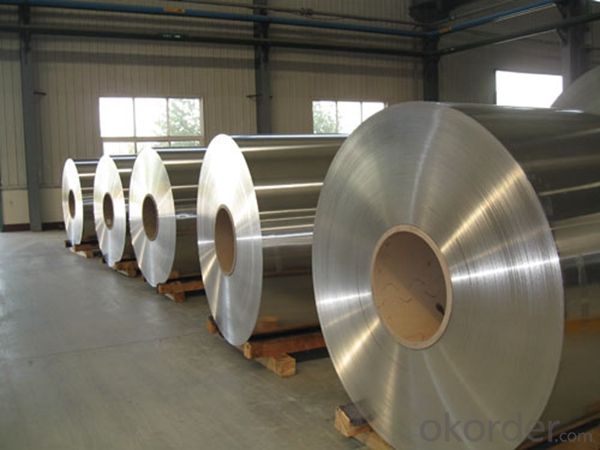
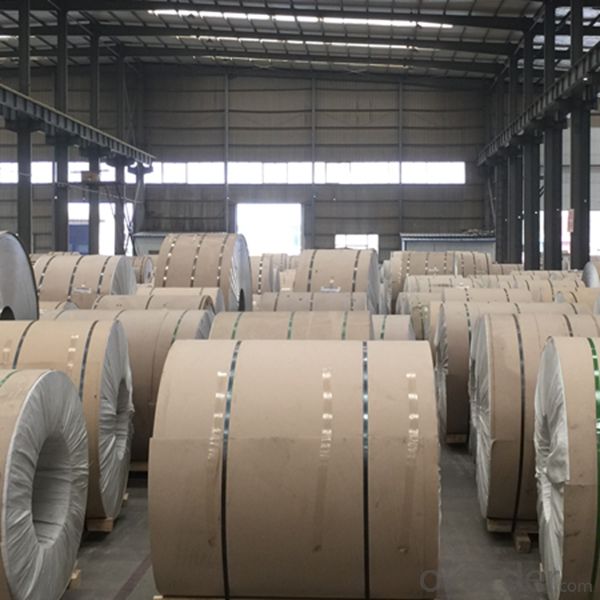
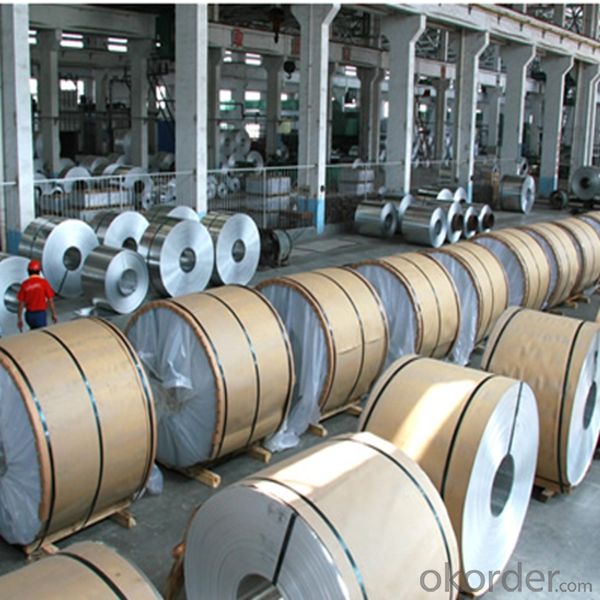
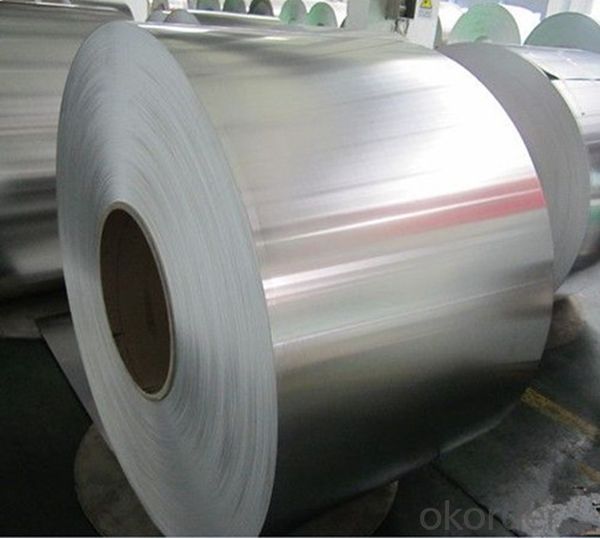
6. Package and shipping of Mill Finish Aluminum 3003 H22 China Factory Direct Supply
First, plastic cloth with drying agent inside; Second, Pearl Wool ; Third, wooden cases with dry agent , fumigation wooden pallets, aluminum surface could cover blue PVC film
7. FAQ
1) What is the delivery time?
Dpends on actual order, around 20 to 35 days
2)What is the QC system:
We have QC staff of 20 persons and advanced equipment, each production is with MTC traced from Aluminum ingot lot.
3) What market do you mainly sell to?
Australia, America, Asia, Middle East, Western Europe, Africa etc
- Q: Can aluminum coils be welded?
- Absolutely! Welding aluminum coils is indeed possible. Aluminum is a material known for its exceptional weldability and is widely utilized in various industries because of its lightweight nature and resistance to corrosion. There are numerous welding techniques available for joining aluminum coils, including TIG welding (tungsten inert gas), MIG welding (metal inert gas), and even laser welding. Nevertheless, it is crucial to bear in mind that welding aluminum can be more demanding compared to other metals due to its high thermal conductivity and low melting point. As a result, it is imperative to employ appropriate welding methods and equipment, such as specialized aluminum welding wire and shielding gases, to guarantee successful and top-notch welds.
- Q: What are the safety precautions required when handling aluminum coils?
- To ensure the safety of individuals and minimize the risk of accidents, it is important to adhere to certain safety precautions when dealing with aluminum coils. 1. Wearing the appropriate Personal Protective Equipment (PPE) is essential. This includes safety glasses or goggles, gloves, and steel-toed boots. These protective items safeguard against injuries caused by sharp edges or flying metal particles. 2. To avoid strains or back injuries, it is important to employ proper lifting techniques when handling heavy aluminum coils. Lift with your legs, not your back, and utilize lifting aids or equipment when necessary. 3. Proper storage and handling of aluminum coils are crucial. Store them in a well-ventilated area that is free from excessive heat or moisture. It is imperative to stack them securely to prevent injury from falling or rolling coils. 4. Fire prevention measures are vital due to the high flammability of aluminum in the form of fine powder or shavings. Keep the working area clean and free from combustible materials. Smoking or open flames should be strictly prohibited in the vicinity. 5. Be cautious of sharp edges on aluminum coils, as they can cause cuts or lacerations. Handle the coils with care and use appropriate tools or equipment when cutting or shaping them to minimize the risk of injury. 6. Provide proper training and education to all individuals involved in handling aluminum coils. This includes understanding the properties of the material, safe handling techniques, and emergency procedures in case of accidents or spills. 7. Be aware of potential chemical hazards associated with coatings or treatments on aluminum coils. Follow the appropriate safety procedures when handling or working with them. By adhering to these safety precautions, the risk of accidents, injuries, and potential hazards can be significantly reduced when handling aluminum coils. Prioritizing safety and ensuring that all employees are trained and equipped with the necessary knowledge and protective gear is crucial.
- Q: How do aluminum coils compare to other metals in terms of strength?
- Aluminum coils have excellent strength-to-weight ratio compared to many other metals. While aluminum is not as strong as steel, it is lighter and more flexible, making it a popular choice in various applications. Aluminum coils can withstand significant forces without breaking or deforming, making them suitable for a wide range of industries, including automotive, aerospace, and construction. Additionally, aluminum coils have good corrosion resistance, which further enhances their durability and longevity. However, it is important to note that the strength of aluminum can vary depending on the alloy and temper used, so specific comparisons should be made based on the particular application and requirements.
- Q: at what state is aluminum at room temperature?what are aluminums physical properties?what is aluminum obtained from?
- Aluminum okorder /
- Q: Is it safe and effective to heat an aluminum coil using a microwave oven?
- <p>No, you should not use a microwave to heat an aluminum coil. Microwaves can cause aluminum to heat unevenly and potentially spark, which is dangerous. Aluminum is a good conductor of electricity and can reflect microwaves, leading to arcing and fire hazards. Always use microwave-safe materials when heating food or other substances in a microwave.</p>
- Q: What are the potential applications of coil-coated aluminum coils?
- Coil-coated aluminum coils have a wide range of potential applications due to their excellent properties and versatility. Some of the key potential applications of coil-coated aluminum coils include: 1. Construction and Architecture: Coil-coated aluminum coils are widely used in the construction industry for various applications such as roofing, wall cladding, facades, and decorative elements. The coils can be easily formed, cut, and shaped to meet specific design requirements, while the coil coating provides durability, weather resistance, and color retention. 2. Transportation: Coil-coated aluminum coils find extensive use in the transportation industry, especially in the manufacturing of automobiles, buses, trains, and aircraft. The lightweight nature of aluminum makes it an ideal choice for reducing fuel consumption and improving energy efficiency. Additionally, the coil coating enhances the corrosion resistance, aesthetics, and overall durability of the aluminum coils. 3. Appliances and Electronics: Coil-coated aluminum coils are commonly used in the manufacturing of appliances and electronics such as refrigerators, air conditioners, ovens, and televisions. The coil coating provides a protective layer that prevents corrosion and extends the lifespan of the products. Furthermore, the aesthetic appeal and color options available in coil-coated aluminum coils contribute to the overall design and aesthetics of appliances and electronics. 4. Signage and Displays: The versatility and visual appeal of coil-coated aluminum coils make them a popular choice for signage and displays. The coil coating enhances the durability, weather resistance, and color vibrancy of the aluminum, making it suitable for both indoor and outdoor applications. Whether it's large billboards, shop signs, or exhibition displays, coil-coated aluminum coils offer a cost-effective and visually appealing solution. 5. Packaging: Coil-coated aluminum coils are extensively used in the packaging industry for various applications such as cans, containers, and lids. The coil coating provides a protective layer that prevents the aluminum from reacting with the packaged contents, ensuring product integrity and safety. Additionally, the lightweight nature of aluminum makes it an eco-friendly choice for reducing packaging waste. 6. Energy and Solar: Coil-coated aluminum coils are increasingly being used in the energy and solar industry. The lightweight and corrosion-resistant nature of aluminum make it an ideal material for manufacturing solar panels and energy-efficient systems. The coil coating further enhances the durability and weather resistance of the aluminum, ensuring long-term performance in various environmental conditions. Overall, the potential applications of coil-coated aluminum coils are vast and diverse, ranging from construction and transportation to appliances, signage, packaging, and energy industries. The combination of excellent properties, such as lightweight, durability, weather resistance, and aesthetic appeal, make coil-coated aluminum coils a preferred choice in numerous sectors.
- Q: This question asks for methods to assess the quality of aluminum coils, which is important for various industries that use aluminum for manufacturing and construction.
- <p>To check the quality of aluminum coils, you should inspect for surface defects such as scratches, dents, or discoloration. Measure the thickness and width to ensure they meet specifications. Test the hardness and tensile strength to verify mechanical properties. Conduct a chemical analysis to confirm the alloy composition. Check for internal defects using non-destructive testing methods like ultrasonic testing. Assess the coil's flatness and straightness to prevent issues in further processing. Finally, ensure proper packaging and storage conditions to maintain coil quality.</p>
- Q: I'm doing a project on aluminum and this is the one thing i can't find. Also will it rust, tarnish or corrode?
- Aluminum is actually highly reactive. Under normal conditions, its outer layer quickly forms a coating of aluminum oxide which is extremely hard and well-attached. This prevents any further corrosion or oxidation. Molten aluminum will react explosively with water; this is a well-known danger in the aluminum casting industry. Very finely powdered aluminum is pyrophoric (self-igniting in air) and is used as a component in flash powder and some solid rocket fuels.
- Q: Can aluminum coils be used for radiation shielding?
- Yes, aluminum coils can be used for radiation shielding. Aluminum is often used as a shielding material due to its high atomic number and excellent attenuation properties, which effectively block and absorb radiation. It is commonly used in various industries, including medical, nuclear, and aerospace, for shielding against different types of radiation such as X-rays and gamma rays.
- Q: Is it possible to use a saw to cut aluminum coils?
- <p>Yes, aluminum coils can be cut with a saw, but it's important to use the right type of saw. A hacksaw or a fine-toothed metal cutting saw is suitable for cutting aluminum. Lubrication is also crucial to reduce friction and prevent the saw blade from overheating. When cutting aluminum, it's advisable to use a cutting fluid or a light machine oil to keep the blade cool and ensure a clean, smooth cut. Always follow safety precautions and wear appropriate protective gear when cutting metal.</p>
Send your message to us
Mill Finish Aluminum Coil 3003 H22 China Factory Direct Supply in Pensacola
- Loading Port:
- Shanghai
- Payment Terms:
- TT OR LC
- Min Order Qty:
- 5 m.t.
- Supply Capability:
- 1000 m.t./month
OKorder Service Pledge
OKorder Financial Service
Similar products
Hot products
Hot Searches
Related keywords
